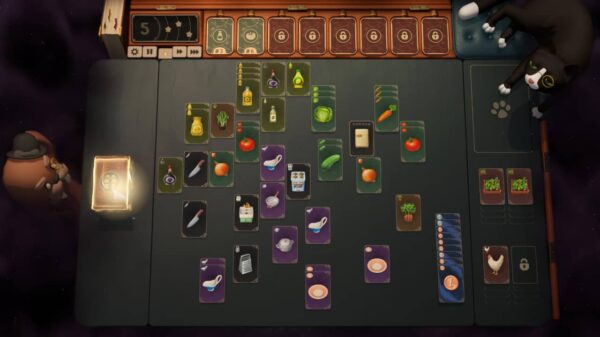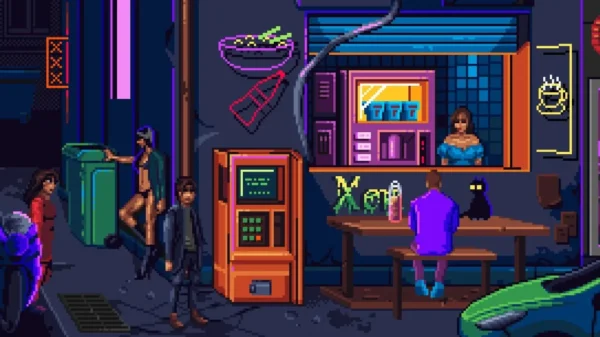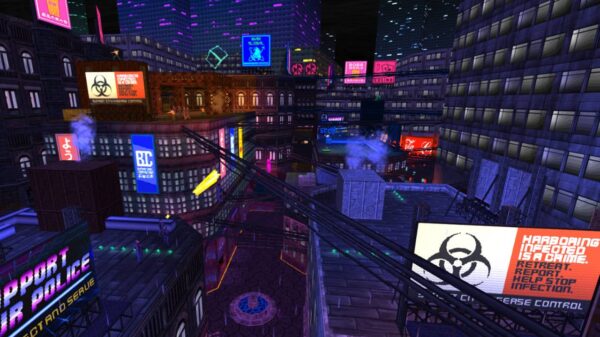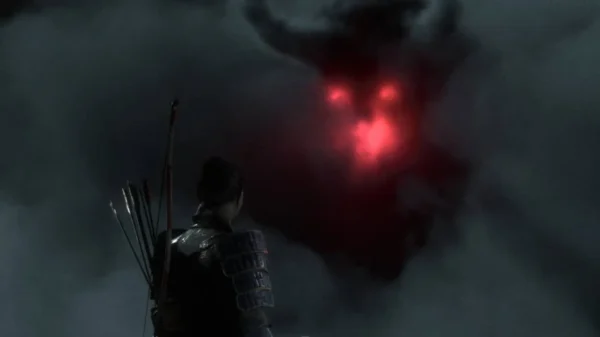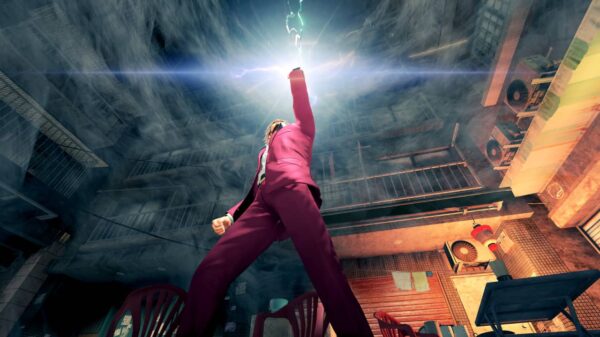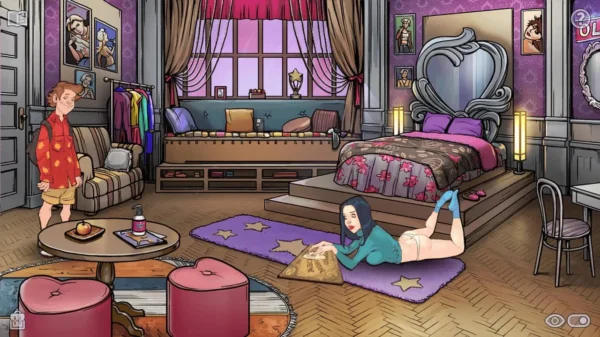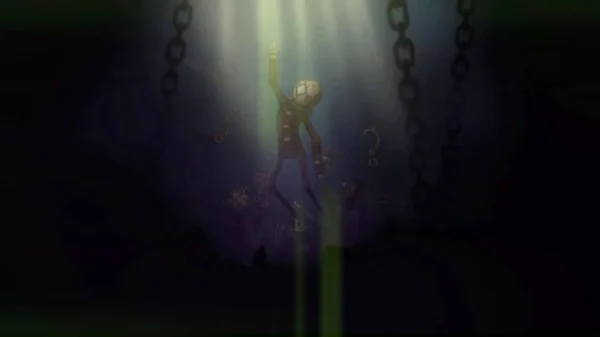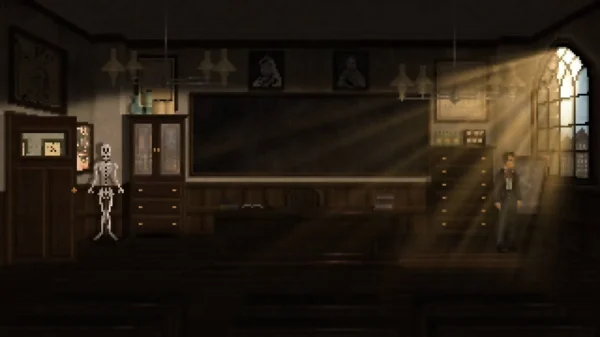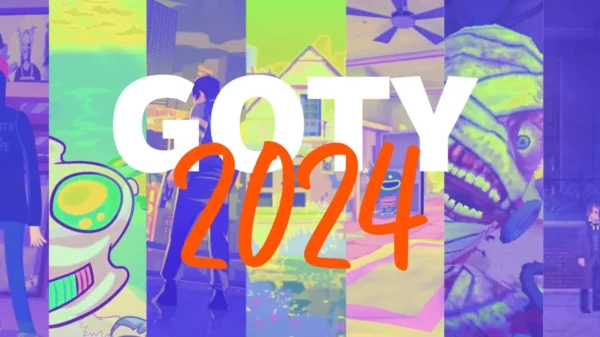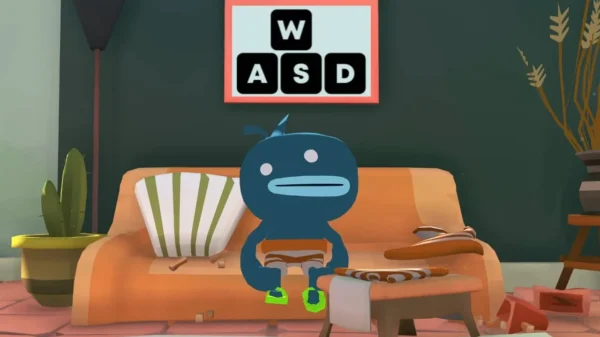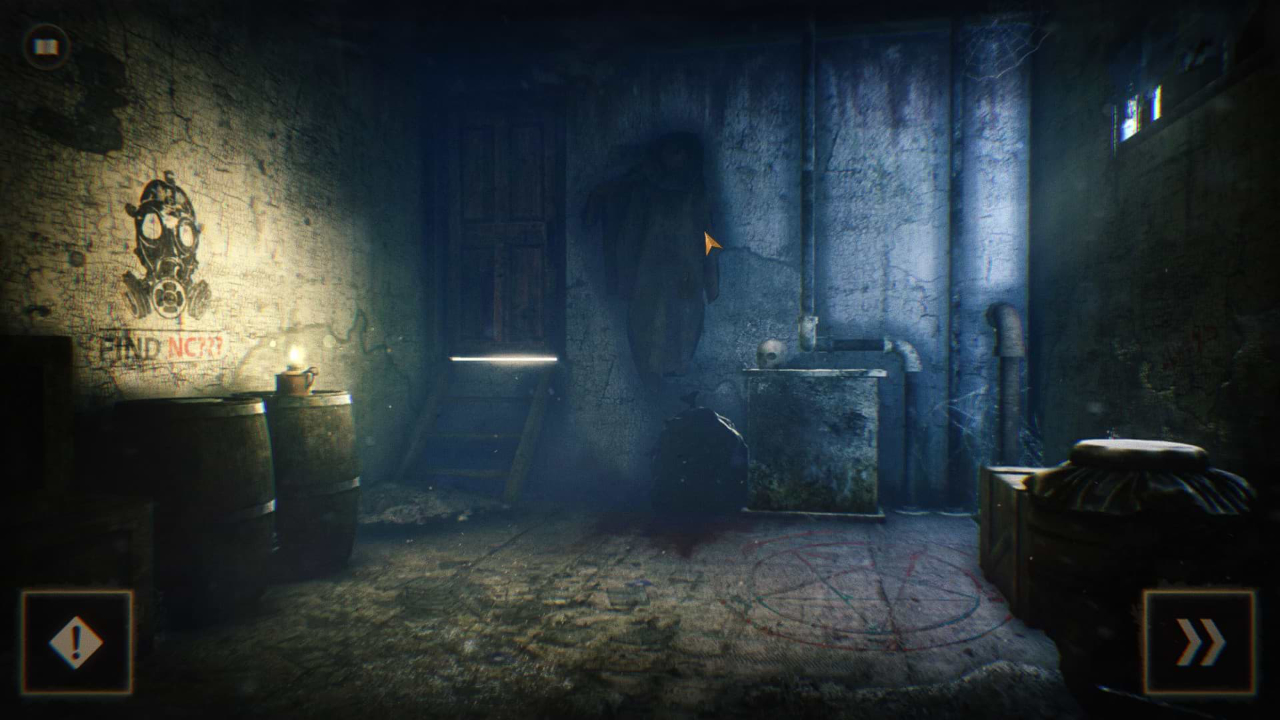An indie puzzle title, this Dark Room Review explores a few sci-fi themes in a story from Lexip Games. If you’re looking for a walkthrough, walk this way.
Suffering from amnesia when you wake up in a locked basement without knowing where you are and the why, is a feeling of… I forget. That must be the amnesia.
However, rummaging through a pocket or two, you’ll find a key to your freedom, only that freedom is just further confusion and frustration as you appear to be locked in a The Outer Limits episode featuring a derelict Victorian House.
Dark Room is an atmospheric puzzle game that I suppose is correct with its label of a point and click title, but not in the adventure style. This is like 7th Guest, The Room or The Crystal Maze if your team abandoned you and there wasn’t a bald host bigging up your intellect telling you how much time you have.
Dark Room Review
A first-person puzzle title, Dark Room from indie developer Lexip Games is a mixed bag. On the surface, it features some beautifully rendered scenes that set the tone and are quite the thrill to admire.
On the other hand, it’s peppered with some unusual choice of words such as the apparent hints that are more challenging to decipher the English than to help with a puzzle.
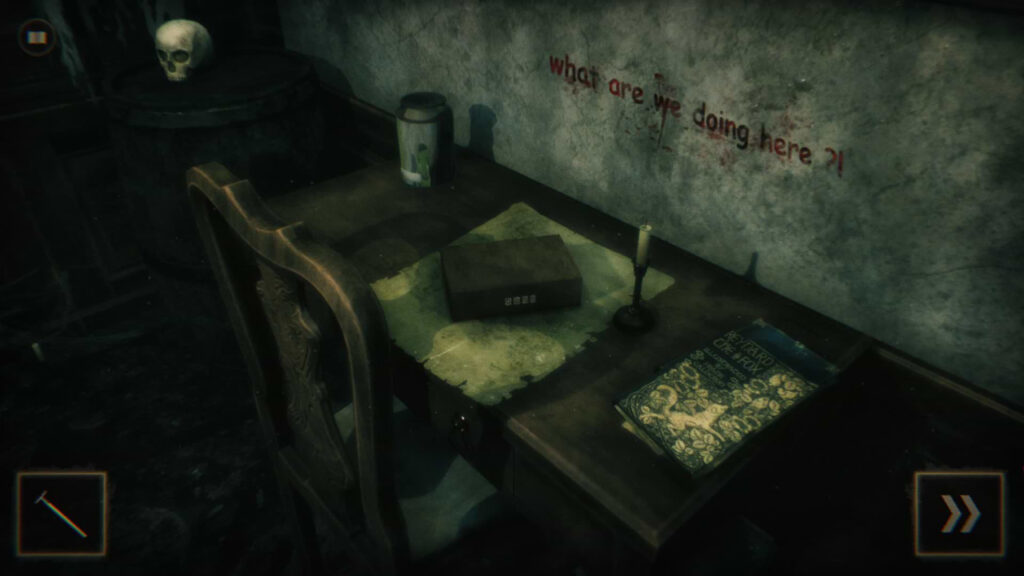
The protagonist is suffering from memory loss, so he pieces back the jigsaw with some scattered notes left behind from similar people. Do you share a link with these? Is there a particular pattern with its guests arriving via way of the basement?
It’s mostly a mash-up of psychological horror and sci-fi. The first part is through your experience wandering the empty house, the second through flashbacks and the notes you find.
There’s not much dialogue, but when it appears, it’s both text and spoken. While the voice acting wasn’t exactly bad, it was a bit disconnected from the game’s vibe, feeling a bit out of place. As for the ambience throughout the rest of the house, it’s no doubt eerie enough to have you on edge.
Forget The Bloody Briefcase!
The game has three difficulty modes: Purgatory, The Green Stone and Top Secret. Purgatory is the ‘easy’ version of the game, and that’s the only option you get to choose from the start. To unlock the other two difficulties, you have to complete each time.
As a result, there are three different endings and while the first was ok, the second clear things up a bit (I’m currently working through my third playthrough, locating a floppy disc in the Top Secret mode.
It’s interesting to note that the starting level is easy. Perhaps when you’ve created the game, it’s common sense, but as a player, there were a couple of puzzles that were so illogical and infuriating that it got to the stage where it felt like an inside joke.
One puzzle, in particular, was about solving a four-digit combination lock on a suitcase. To find the solution was practically impossible without using the built-in hints, but these hints are just as bad as the puzzle as you have to decipher the sentence structure and work out if it’s actually English.
Eventually, something clicks, and not through logic but the process of elimination and when you solve the puzzle, the second time around on normal mode is easy, and dare I say, a cakewalk.
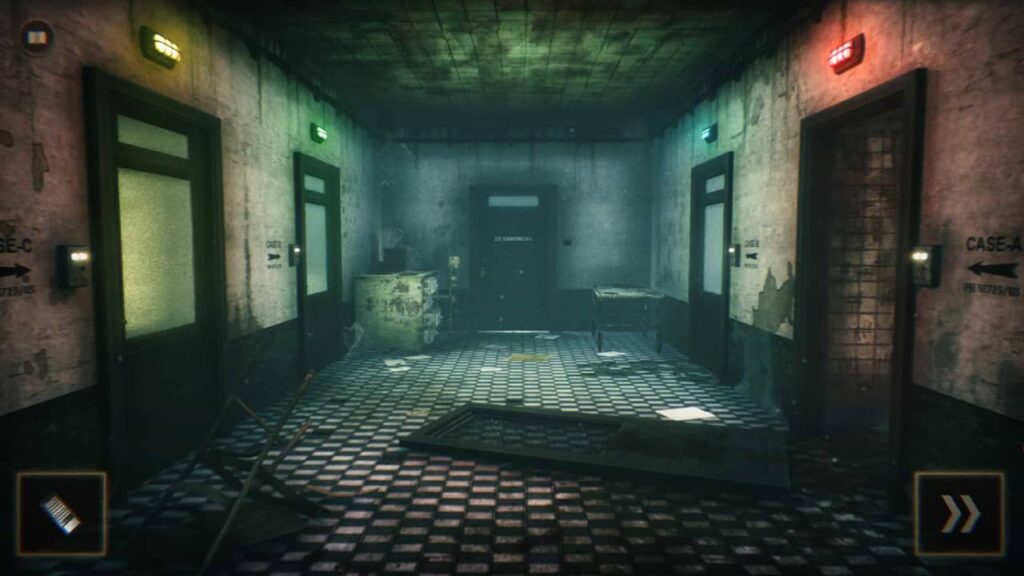
But it wasn’t without hair-pulling moments. I think I must have spent a good three hours in my first playthrough, on the second, around 20 minutes. I was even able to skip a puzzle as I had guessed the passcode needed to enter on a computer as it followed the same pattern as the easy mode.
A Short Story Drawn Out
Like The Outer Limits reference, Dark Room reminds me of a short story – like a Lovecraftian type narrative but more of an idea that an extensive world to explore.
The actual playing environment of the house is relatively small, but the duration comes into play with the backtracking with keys and the bulk of it from problem-solving.
Some of the puzzles were enjoyable such as block sliding to match a photograph you see on a locker or moving blocks so you can get to a key. It reminded me of those mini-games you see in the likes of Deus Ex or other hacking-like puzzles.
The suitcase though was mental. Now I know the solution, sure – easy, buy it wasn’t always that way. Do note that on the third playthrough, the difficulty ramps up and all those patterns you learned are now defunct. It adds to the challenge but is probably more for the die-hards or completionists.
Dark Room development
It wasn’t until the title sequences that I saw that Dark Room is Episode 1, so we’re bound to see a follow up carrying on the lore and tricky puzzles.
While I liked the art style (not so much for the character design), for any sequel, there needs to be an improvement to the hint system. At the least, more logic for the puzzles, as I foresee many bailing on the title in frustration.
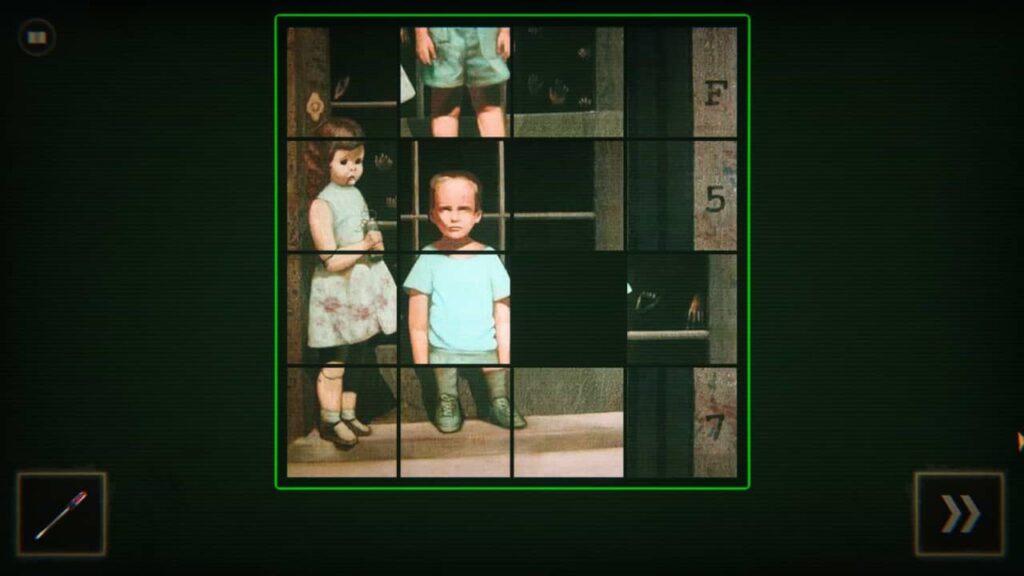
As I said, it didn’t bother me too much, but the voice acting will irritate others as it breaks the mood a little and does feel like the actor is reading it. Perhaps just a few sanity checks on the translations, but ultimately, the puzzles and Episode 2 would be a worthy successor I’d be interested in playing.
Bear in mind that once you finish the easy mode, the normal mode is almost exactly the same, and I didn’t find a challenge whatsoever. No, I’m not being cocky, it genuinely was easy after the first attempt. I can’t say the same about the hardest difficulty as I’m playing this a little slower as my brain feels a bit delicate.






